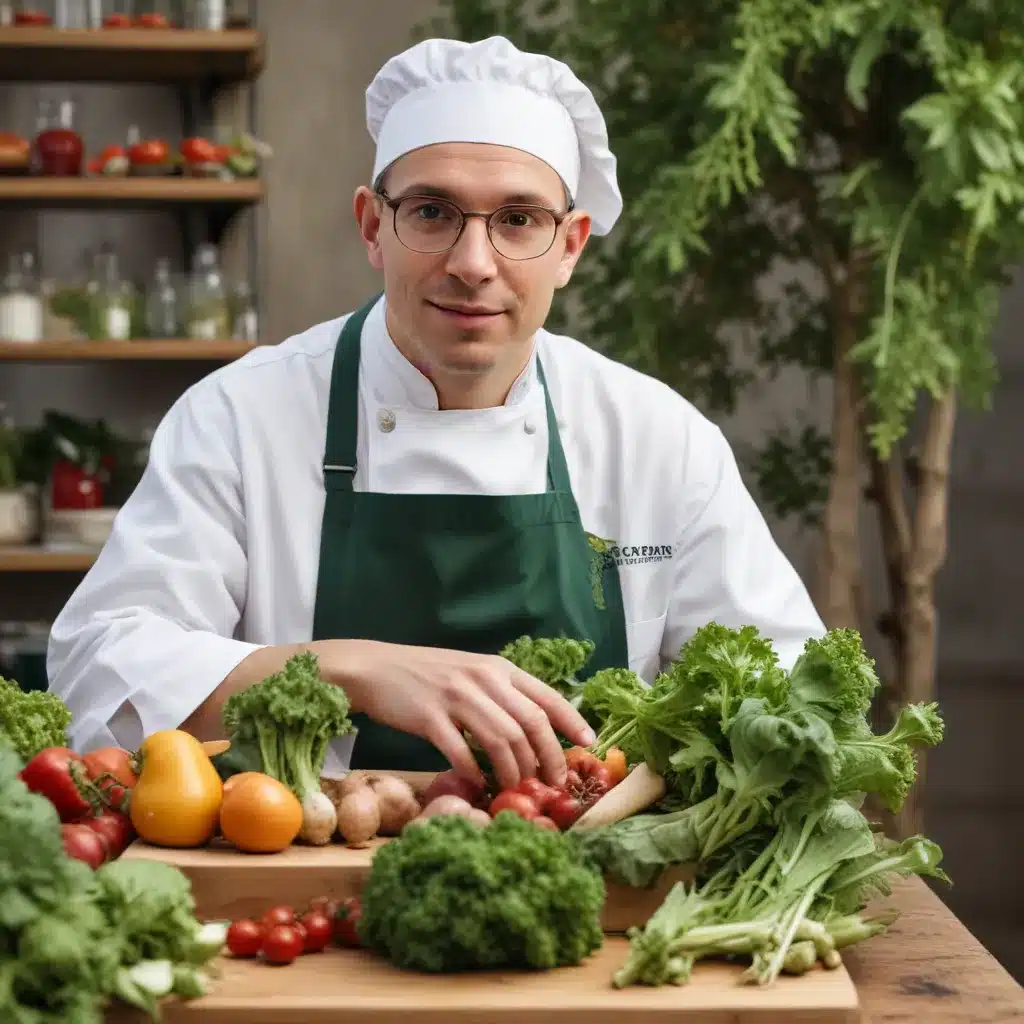
Reconnecting with Our Culinary Roots for a Resilient Future
As culinary professionals, we have a unique opportunity to shape the future of our food systems. By embracing the principles of sustainability and harnessing the power of culinary science, we can cultivate more resilient, nourishing, and delightful dining experiences.
In today’s rapidly evolving world, where environmental challenges and global food security concerns loom large, the science behind our culinary practices has never been more important. From the sourcing of ingredients to the preparation techniques we employ, every step in the culinary process carries the potential to drive positive change.
In this in-depth exploration, we’ll dive into the fascinating intersections of food science, sustainability, and culinary innovation. We’ll uncover the cutting-edge research, time-honored traditions, and forward-thinking approaches that are redefining the way we think about, prepare, and appreciate our food.
The Foundations of Culinary Sustainability
At the heart of culinary sustainability lies a deep understanding of the complex web of interconnected systems that govern our food supply. This holistic view, rooted in the principles of systems thinking, challenges us to consider the far-reaching impacts of our culinary choices.
As cited on the University of Washington website, the field of nutrition and food science encompasses a diverse array of disciplines, from food chemistry and microbiology to public health and policy. By synthesizing knowledge from these diverse realms, we can craft a more comprehensive approach to sustainable culinary practices.
One key aspect of culinary sustainability is the concept of food systems. As described in the Unity.edu article, food systems encompass the entire lifecycle of our food, from production and processing to distribution, consumption, and waste management. By understanding the intricacies of these systems, we can identify opportunities to optimize efficiency, minimize environmental impact, and ensure equitable access to nutritious, high-quality ingredients.
Embracing the Science of Sustainable Sourcing
At the foundation of any sustainable culinary practice is the thoughtful selection and procurement of ingredients. This is where the science of food production and supply chain management come into play.
The Stockholm Resilience Centre article introduces the concept of “gastronomic landscapes” – landscapes that are cultivated or managed with a focus on broader culinary values, such as nutrition, taste, and cultural significance, rather than solely the caloric output of the produce. By embracing this holistic approach to ingredient sourcing, we can foster more resilient ecosystems and support thriving local communities.
One example of this can be seen in the case studies highlighted in the article, where traditional ecological knowledge and culinary practices are used to enhance food security, biodiversity, and equity in diverse regions around the world. From the Pamir Mountains of Afghanistan to the Sápmi region of Scandinavia, these stories illustrate the power of reconnecting culinary traditions with sustainable land and resource management.
Harnessing the Science of Food Preparation
Beyond the sourcing of ingredients, the science of culinary preparation plays a crucial role in sustainable food practices. As explored in the CIA blog post, the seemingly simple act of skimming a stock can reveal the complex interplay of physical and chemical forces at work in the kitchen.
By understanding the underlying science behind cooking techniques, we can optimize flavor, texture, and nutrient retention, while also minimizing waste and energy consumption. From the precise temperature control required for sous vide cooking to the strategic use of fermentation to extend the shelf life of perishable foods, culinary science offers a wealth of insights to enhance the sustainability of our culinary practices.
Moreover, as outlined in the Unity.edu article, food science plays a crucial role in addressing modern challenges such as food safety, nutritional enhancement, and the reduction of food waste. By harnessing these scientific principles, we can ensure that our culinary creations not only delight the senses but also nourish our bodies and communities in a sustainable manner.
Cultivating a Culture of Culinary Sustainability
Ultimately, the path to a more sustainable culinary future lies not just in the application of scientific principles, but also in the fostering of a cultural shift. As the Stockholm Resilience Centre article suggests, “gastronomy can be practiced by everyone and motivate people, including farmers, hunters, and a wide diversity of cooks, to think more carefully about how food is produced and prepared.”
By embracing a culinary mindset that values locality, diversity, and quality over quantity, we can unlock new possibilities for stewarding the biosphere. This shift in perspective can inspire not only chefs and home cooks but also the broader community of food producers, suppliers, and consumers to actively participate in the journey towards a more sustainable food future.
At Kitchen Warrior, we believe that the science of culinary sustainability is not just a niche concern, but a vital imperative for the wellbeing of our planet and its people. By empowering our readers with practical knowledge, inspiring culinary innovation, and fostering a deeper connection to our food systems, we aim to catalyze a culinary revolution that will transform the way we think about, prepare, and enjoy our meals.
Conclusion: Embracing the Future of Culinary Sustainability
As we look to the future, the science of culinary sustainability offers a guiding light for chefs, home cooks, and food enthusiasts alike. By embracing the principles of systems thinking, sustainable sourcing, and the strategic application of culinary science, we can cultivate a more resilient, nourishing, and delightful food landscape.
Through collaborative efforts, shared knowledge, and a collective commitment to sustainability, we have the power to redefine the role of the culinary professional in shaping a better world. Let us embark on this journey together, exploring the cutting edge of culinary science and reconnecting with our roots to create a future where every meal is a celebration of our connection to the land, the sea, and the rich tapestry of culinary traditions that have sustained us for generations.



